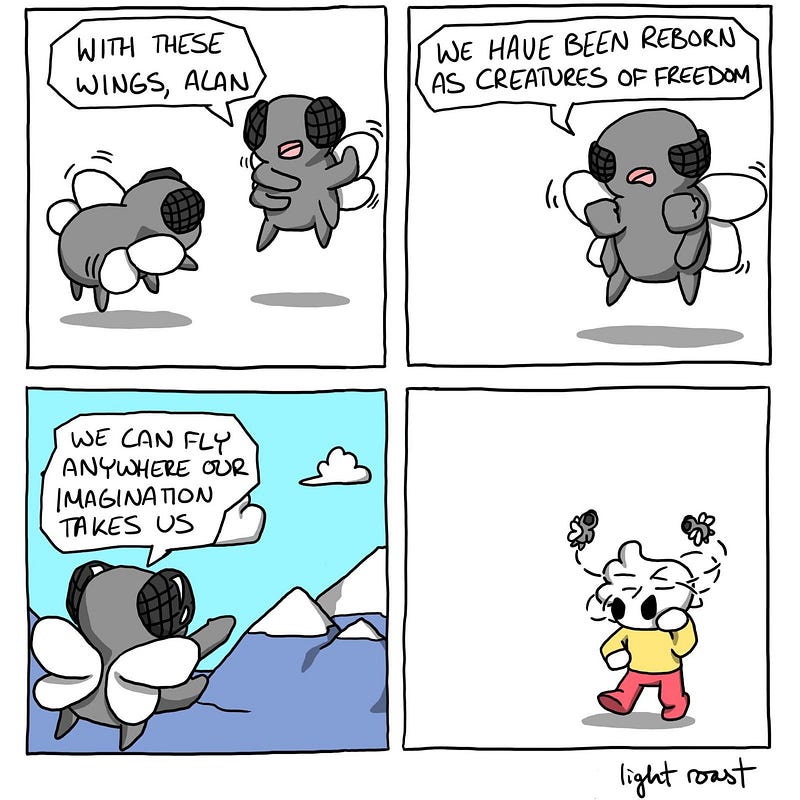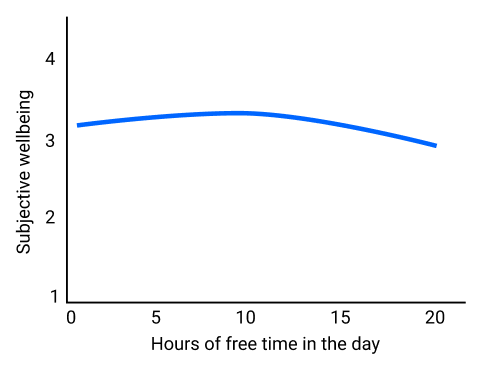Free Time: A Double-Edged Sword for Wellbeing and Happiness
Written on
Chapter 1: The Dilemma of Free Time
We've all experienced those exhausting days that leave us collapsed on the couch at night, contemplating our need for more leisure time. For some, this feeling is persistent, indicating that a change is necessary. An unbalanced life, with excessive work and insufficient downtime, is unsustainable and can ultimately lead to burnout.
Many believe that increased free time equates to greater happiness. Lifestyle coaches often suggest prioritizing time over money, which holds some merit. Yet, this perspective overlooks another side of the spectrum. While we understand the repercussions of overworking, we know far less about the potential downsides of having too much free time.
Recent research has delved into the intricate relationship between free time and overall wellbeing, revealing that the correlation is not as straightforward as one might think. Happiness may increase with more leisure time, but only to a certain extent. Just as a packed schedule can overwhelm you, an excess of unstructured time can also be detrimental, particularly if it's not utilized effectively.

Chapter 2: Insights from Research
In a study published in 2021, researchers conducted several investigations to explore how free time affects wellbeing. They initially examined data from a comprehensive survey of the American workforce, which included 13,639 participants from 1992 to 2008. Two pivotal questions were posed in the survey: “On average, how many hours do you dedicate to personal leisure activities while working?” (responses ranged from 0 to 20 hours) and “How do you currently feel about your life?” (rated on a four-point scale from “very dissatisfied” to “very satisfied”).
The analysis demonstrated a negative quadratic relationship between free time and wellbeing, resembling an inverted U-shape. This means that individuals with either very little or excessive free time reported lower levels of wellbeing compared to those who experienced a moderate amount of leisure time.

The same analysis was repeated using a second dataset, the American Time Use Survey (n = 21,736), which asked participants about their daily activities. This time, the researchers more clearly defined “free time” by gathering opinions online. Over 90% of respondents agreed that activities like relaxing, socializing, engaging in arts and entertainment, leisure travel, and recreational sports were representative of free time.
To quantify free time, the researchers calculated the total hours spent on these activities daily. They measured wellbeing through a life satisfaction question known as Cantril’s Ladder of Life Scale, asking respondents to rate their current life satisfaction on a scale from 0 to 10.
Again, the findings illustrated the inverted U relationship, confirming that both insufficient and excessive free time corresponded to lower life satisfaction.
To further support these correlational findings, the researchers conducted a mental simulation experiment to see if altering perceptions of free time would influence expected wellbeing. Participants were asked to envision having either 15 minutes, 3.5 hours, or 7 hours of free time daily for six months and to detail how they would spend it before rating their anticipated enjoyment.
The results mirrored the survey findings: life satisfaction increased from low to moderate free time but declined from moderate to high amounts of leisure. Interestingly, the context of how people envisioned using their free time played a crucial role. When asked to imagine “wasting” free time, those with 3.5 hours felt happier than those with 7 hours. This indicated that people might default to unproductive use of their free time. Conversely, when they envisioned using their free time productively—through socializing, exercising, or engaging in sports—the trend reversed, with higher happiness linked to more free time.
This evidence suggests that an excess of free time can be problematic, but the emotional risks can be mitigated by how one allocates their leisure time. By prioritizing social and productive activities over constant relaxation or inactivity, you can enjoy your freedom without being overwhelmed.
Chapter 3: Practical Takeaways
Don’t Overwork Yourself: While this discussion emphasizes the surprising notion that too much free time can be a burden, it’s also crucial to recognize that excessive work harms health and happiness. If you feel overworked and struggle to carve out time for relaxation or enjoyment, it may be time to reassess priorities. Stricter boundaries at work or a more efficient approach to household tasks may be necessary. Don’t hesitate to structure your life around your well-being.
Be Cautious About What You Wish For: When lacking free time, it's easy to fantasize that a life devoid of responsibilities would lead to happiness. However, free time comes with its own challenges. Simply relaxing can provide temporary satisfaction, but perpetual leisure can diminish its appeal. Engage in activities that foster motivation and purpose—volunteering, spending time with loved ones, or focusing on fitness—to keep your energy and mental stimulation high.
Identify Your Inverted U: The inverted U relationship manifests in many aspects of life, reinforcing the adage that “too much of a good thing” can be detrimental. Be mindful of this principle in various pursuits that bring you joy. Even your favorite foods or hobbies can lose their charm if overindulged. Cultivating gratitude for what you possess can counteract boredom, but also seek diversity in experiences to enhance your happiness. Many enriching activities await discovery that can elevate your joy—like exploring hobbies or interests you haven't tried yet.
“Everything that is really great and inspiring is created by the individual who can labor in freedom.”
~ Albert Einstein
This sermon discusses transforming challenges into blessings, emphasizing the potential of free time.
This video explores the dual nature of blessings and curses, shedding light on how to navigate free time effectively.